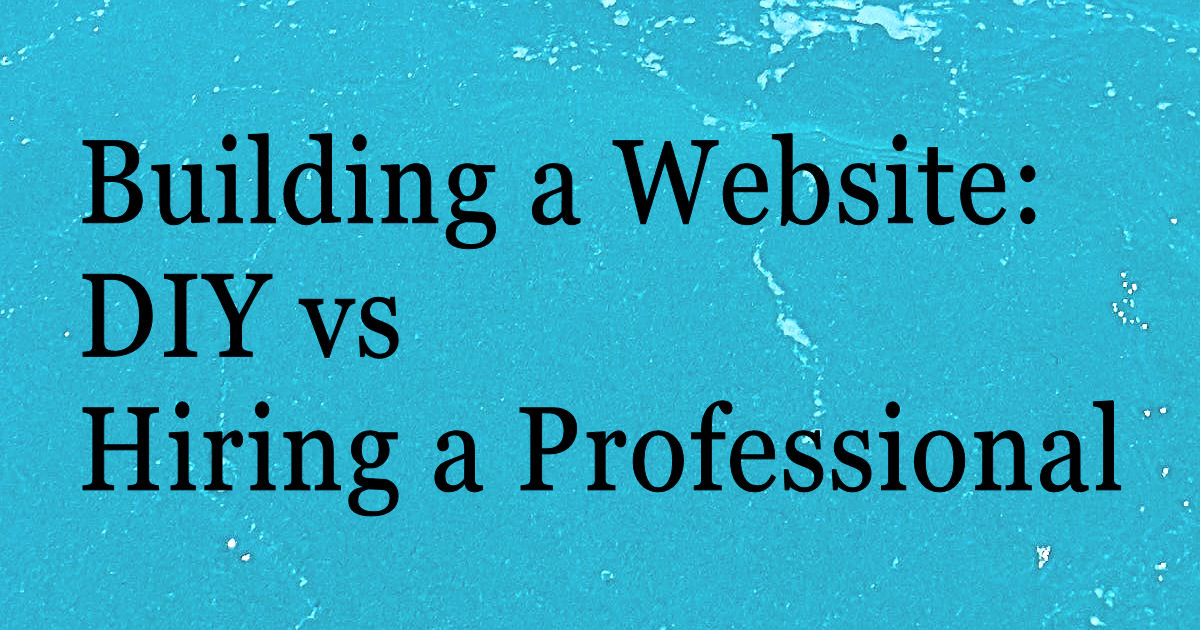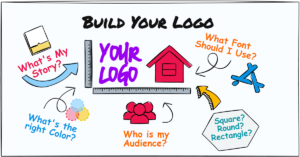When starting a website for your small business, one of the first decisions is whether to take the DIY route or hire a professional. Both options have their pros and cons, and the right choice will depend on your budget, time constraints, and technical expertise.
Let’s dive deeper into the specifics of building a website for your small business, and explore the pros and cons of both DIY and hiring a professional.
The DIY Website Route
Building your own website may seem like the cheaper option, but there are a lot of factors to consider. First, you’ll need to choose a website builder. There are plenty of options out there, including Wix, Squarespace, and WordPress. While these builders are user-friendly, you’ll still need to have some technical skills and experience to design an attractive, well-optimized site. Website builders range in cost from free with some hosting platforms to $12-50/month for more features.
Additionally, DIY website building can be time-consuming. You’ll need to allocate time to learn the website builder, design your website, and create content. This can be a significant commitment, especially if you’re already busy running your business.
Another downside of DIY website building is the lack of support. If something goes wrong, you’ll need to troubleshoot and fix it yourself. This can be frustrating and time-consuming.
The Pros:
- Low upfront cost, no developer fees
- Flexibility to make ongoing changes yourself
- Learn valuable technical skills
The Cons:
- Time-consuming to learn the builder and code the site
- Lack design expertise – sites may not be visually polished
- Responsible for long-term support and updates yourself
Hiring a Professional
Hiring a professional to build your website is a great option if you have the budget. A professional web designer will have the experience and technical skills to create a website that looks great, is user friendly and performs well for the search engines. They’ll also be able to advise you on best practices for website design and SEO.
Working with a professional web designer can also save you time. While you’ll still need to be involved in the process, you won’t need to allocate as much time to learning and building the website yourself. This will allow you to focus on running your business.
The biggest downside of hiring a professional is the cost. Professional web design can be expensive, and it’s important to ensure that you’re working with a reputable designer who will deliver results. Costs range widely depending on the scope of work. For a basic 1-page informational site, expect to pay $500-3,000. A full-featured eCommerce site could be $2,000-10,000+, depending on the size of the website and amount of products. Ongoing maintenance can start at $40/hr or could be a monthly cost depending on your web designer.
The Pros:
- Quicker process with design and development experts
- Polished design with optimized user experience
- Hand-off for long-term support and updates
The Cons:
- Higher upfront costs than DIY options
- Need to research developers and compare proposals
Conclusion
For most small businesses, hiring a professional web designer is worth the investment. A well-designed, user-friendly website creates a polished brand image and helps attract more customers. Consider your budget and technical skills – if you have limited time or abilities, outsourcing ensures professional results.
While a DIY site is a lower cost entry, the time spent learning and lack of design expertise risks a mediocre final product and can cost you much more in the form of time. Unless you have extensive coding experience, hiring a pro is recommended for businesses that can invest $500-5,000 for a fully customized digital presence.
In the end, weigh your budget and timeline and consider outsourcing at least the initial design and development phases. A professional site establishes credibility and positions your business for long-term growth. However, if you’re working with a limited budget, DIY website building can be a viable option – just be prepared to invest time and energy into the process.


